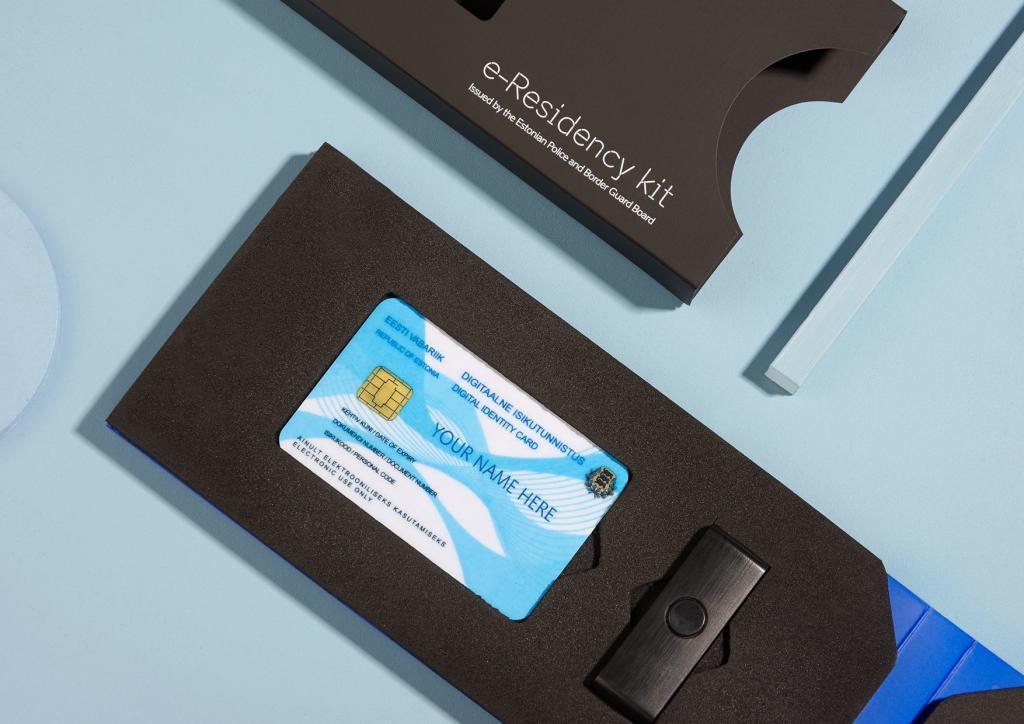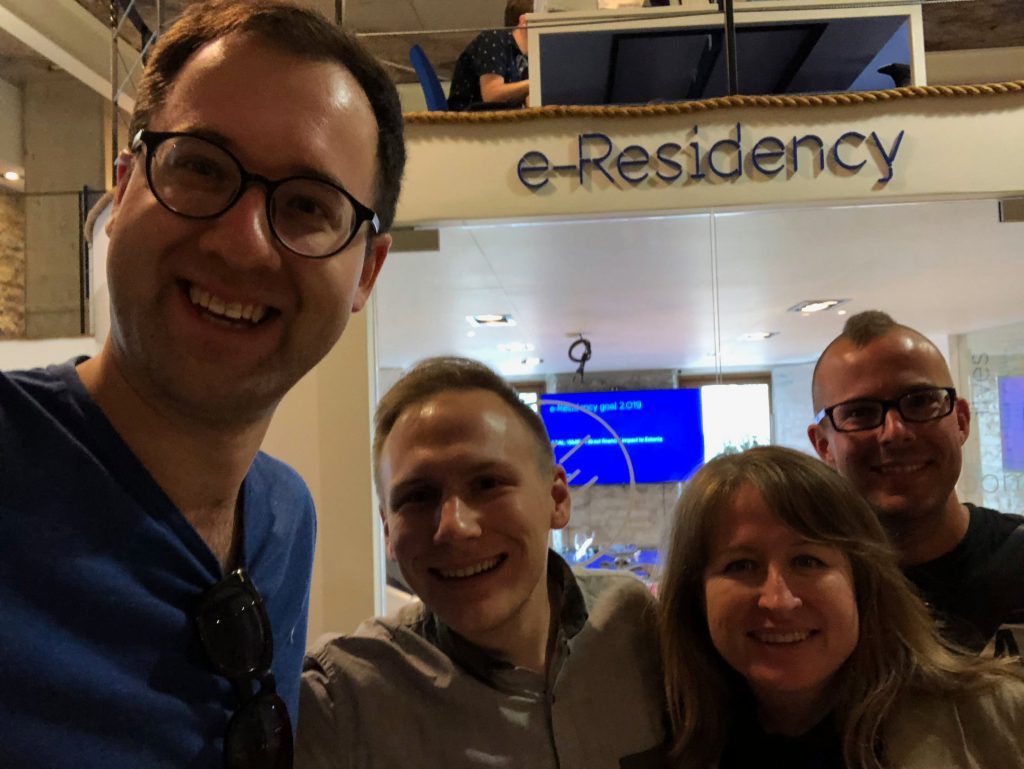Several e-residents, spanning the globe from Vancouver, Canada, to Seoul, Korea, have formed EERICA – the Estonian E-Residents’ International Chamber Association.
Nine e-residents of Estonia came together in May to form EERICA. The independent, non-profit association seeks to bring e-residents together and promote their interests as an official group. The official launch party, attended by five of the founding members and over 50 guests from Estonia and abroad, was held in Tallinn the evening before Latitude59, the largest annual startup and tech conference in Estonia.
Christoph Huebner, who serves as the first president of the organisation, began talking to other e-residents about the need for an organisation like this several months ago. After several conversations, he drafted a vision document to share with the group. Over the next several weeks, the group collaborated via Google Docs and Zoom to draft the manifesto now published online.
EERICA is similar to a traditional chamber of commerce in many ways, but the needs of e-resident business owners are unique in several ways. All e-residents inherently operate internationally. However, unlike the publicly traded multinationals, typically associated with international business, most e-resident entrepreneurs have relatively small operations, and don’t have dedicated resources available to navigate the complexity.
Additionally, most have entirely remote operations, which bring their own unique challenges, such as the practical side of running distributed teams and outdated legislation that hasn’t caught up to the realities of small, distributed companies.
Building connections and bridges
Many e-residents currently turn to social media for help with these issues, but only a few experienced members are regularly active in these groups. EERICA will help address some of these problems by connecting experienced members with relevant experience to newer ones. “Perhaps we could even start a virtual incubator someday,” Kirill Soloviev, one of the founding members, said.
Like a traditional chamber of commerce, the international chamber will enable e-resident entrepreneurs to find others who can offer the goods or services they seek. EERICA also welcomes Estonian citizens/residents and companies to join as supporting members. The chamber is also exploring other ways to encourage business between e-residents and Estonia.

While most e-residents operate online businesses, it’s not all about digital interactions. Many location-independent entrepreneurs, especially if they work solo, can feel lonely and disconnected. Face time (no pun intended) is important, even for those who grew up spending most of their life online.
The international chamber plans to build opt-in tools to help e-residents find each other offline, similar to the community platform that the e-residency programme trialled last year. In the short time since launch, EERICA has already organised meetups in Moscow (with Startup Estonia) and Berlin (with the Estonian e-residency programme), and another is being planned in Seoul.
Working alongside existing organisations
The e-residents that formed EERICA realise that the existing organisations cannot do everything alone and that collaboration is essential to finding good solutions. EERICA is a supplementary organisation rather than a competitor to service providers.
For example, the international chamber cannot give official tax advice like a service provider, but experienced members may offer best practices based on their experience. This will help the new entrepreneur ask more intelligent questions to a licensed tax professional.

EERICA has, perhaps most importantly, built a good relationship with the e-residency programme. Several of the founding members have worked with the programme in the past by contributing improvements to published information, appearing as guests in webinars, and speaking at events. The international chamber as a group will continue to help the e-residency team solve problems and is uniquely positioned to identify hot issues facing e-resident entrepreneurs and to use its members as a sounding board for solutions proposed by the government.
7,000 new companies in Estonia
In 2014, Estonia became the first country to offer e-residency by enabling anyone to apply for an Estonian government-backed ID card, which provides access to the country’s digital services. Since then, over 50,000 people from over 150 countries have become e-residents.
The e-residents have already created over 7,000 new companies in Estonia and, according to an economic impact analysis ordered by the e-residency programme, have contributed €25 million to the Estonian state and economy so far. This comes from e-residents paying direct taxation in Estonia, conducting business with other Estonian companies, investing in Estonia or simply travelling here for a mixture of business and pleasure.
If you are part of an organisation that could collaborate with EERICA, you can get in touch via email at tere@eerica.ee. Prospective members can apply to join online at eerica.ee.
Cover: Members of EERICA participating in a discussion at Latitude59.

